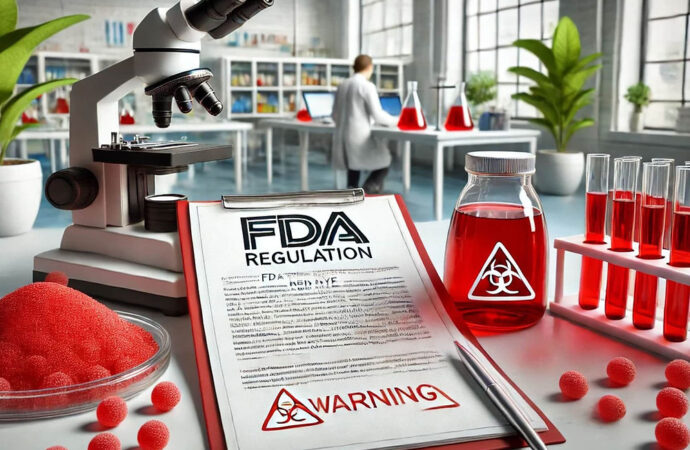Report
The U.S. Food and Drug Administration (FDA) is actively considering a ban on Red 3, a synthetic food dye used in over 3,000 products, including popular snacks. Chemically known as erythrosine and derived from petroleum, Red 3 provides a vibrant cherry-red colour to food but adds no nutritional value.
Health concerns have intensified due to evidence linking Red 3 to cancer and behavioural issues in children. During his testimony before the Senate Health Committee on Thursday, Jim Jones, FDA’s deputy commissioner for human foods, stated: “We have a petition in front of us to revoke the authorization of Red 3, and we’re hopeful that in the next few weeks, we’ll act on that petition.”
This move comes after California banned four synthetic food dyes, including Red 3, last year. It also reflects growing pressure to align U.S. food safety policies with stricter European Union standards.
Health Risks Fuel Red 3 Controversy
Red 3 has already faced restrictions in cosmetics since 1990 due to its carcinogenic effects in animal studies—a decision rooted in the 1960 Delaney Clause. This law prohibits any colour additive from being deemed safe if it has the potential to cause cancer in humans or animals. Despite its removal from cosmetics, Red 3 remains authorized for use in food.
Frank Pallone Jr., a Democrat and ranking member of the House Energy and Commerce Committee, criticized the FDA’s continued approval of Red 3, stating: “There is simply no reason for this chemical to be in our food except to entice and mislead consumers by changing the colour of their food so it looks more appealing.”
While the FDA maintains that its approved food dyes are safe when consumed as directed, studies suggest troubling effects. A 2021 review in California found a link between synthetic food dyes and hyperactivity or neurobehavioral issues in children. Thomas Galligan, a principal scientist at the Center for Science in the Public Interest, explained: “The evidence now shows pretty conclusively that when some kids eat these, they will experience nervous system effects that look like ADHD.”
Growing Calls for Action and Change
Robert F. Kennedy Jr., President-elect Donald Trump’s nominee for health secretary, criticized the FDA’s inaction, stating: “There are some departments such as the nutrition departments in the FDA that have to go, that are not doing their job, they are not protecting our kids.” European countries have already adopted precautionary measures, such as implementing warning labels or completely banning certain food dyes, to prioritize consumer safety. The FDA’s decision to ban Red 3 could set a significant precedent and alter how the United States regulates synthetic food additives.
Pallone added: “With the holiday season in full swing, where sweet treats are abundant, it is frightening that this chemical remains hidden in these foods that we and our children are eating.”
Source: The Times of India
 Food Manifest
Food Manifest 


















